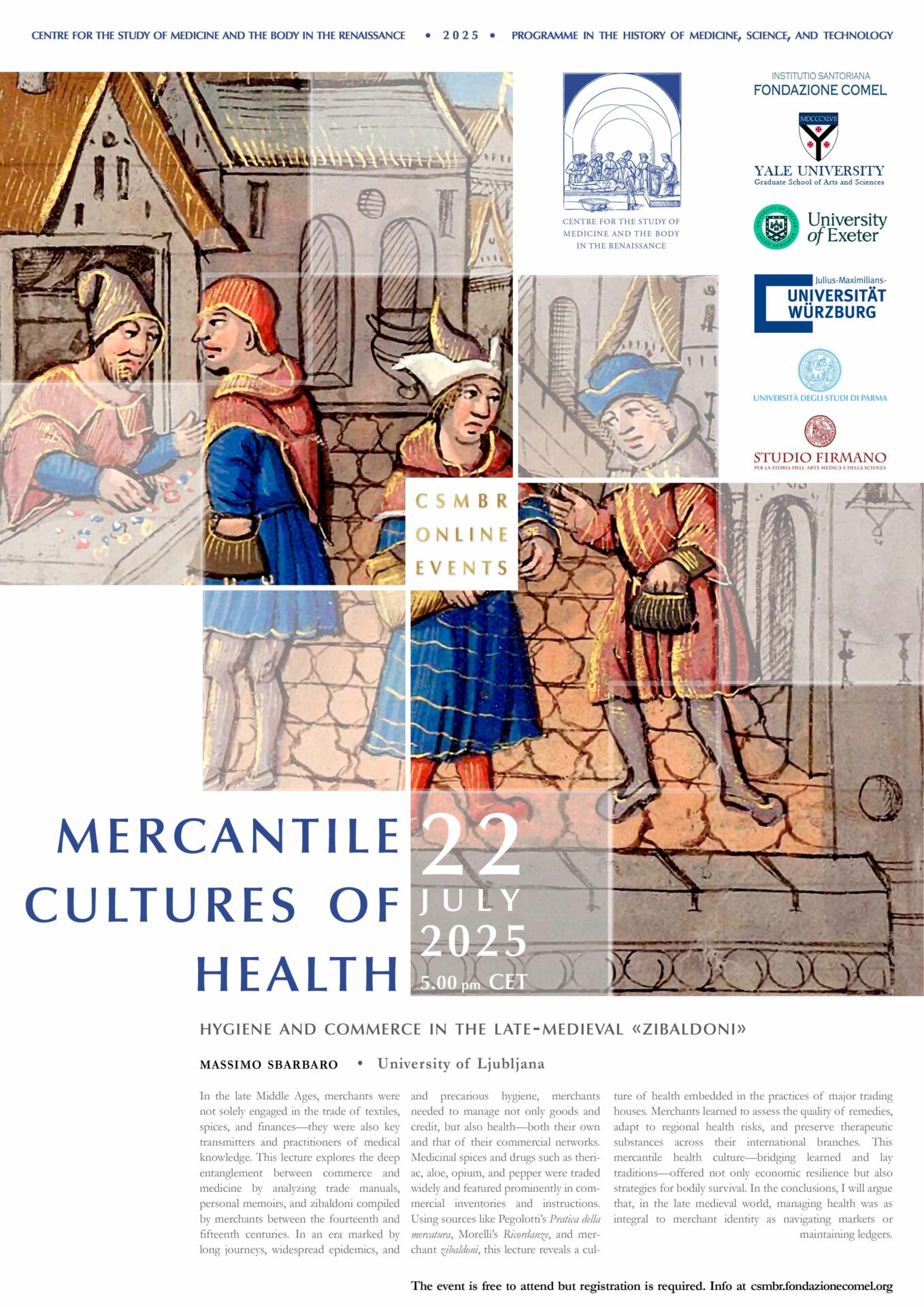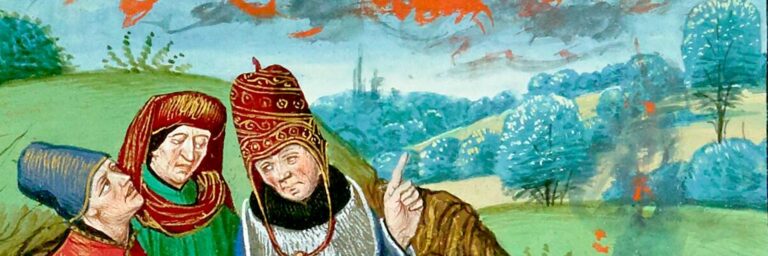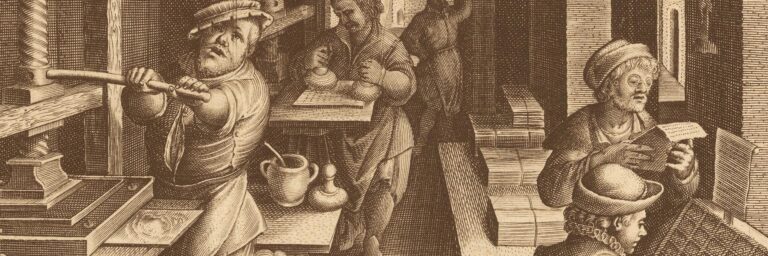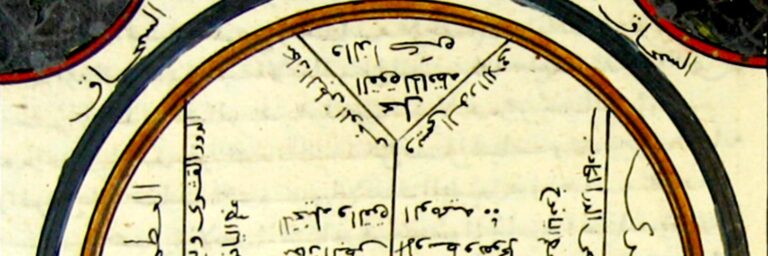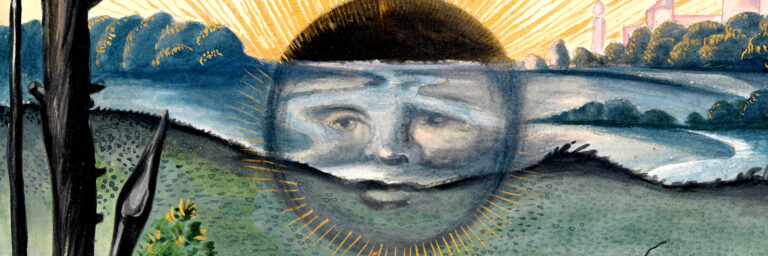Mercantile Cultures of Health

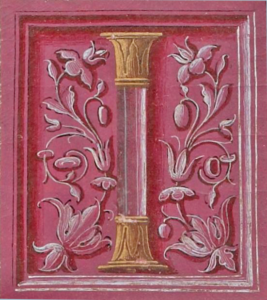
Mercantile Cultures
of Health
Hygiene and Commerce
in the Late-Medieval «Zibaldoni»
Massimo Sbarbaro
22 July 2025 – 5 PM (CEST)
In the late Middle Ages, merchants were not solely engaged in the trade of textiles, spices, and finances—they were also key transmitters and practitioners of medical knowledge. This lecture explores the deep entanglement between commerce and medicine by analyzing trade manuals, personal memoirs, and zibaldoni compiled by merchants between the fourteenth and fifteenth centuries.
In an era marked by long journeys, widespread epidemics, and precarious hygiene, merchants needed to manage not only goods and credit, but also health—both their own and that of their commercial networks. Medicinal spices and drugs such as theriac, aloe, opium, and pepper were traded widely and featured prominently in commercial inventories and instructions.
Using sources like Pegolotti’s Pratica della mercatura, Morelli’s Ricordanze, and merchant zibaldoni, this lecture reveals a culture of health embedded in the practices of major trading houses. Merchants learned to assess the quality of remedies, adapt to regional health risks, and preserve therapeutic substances across their international branches.
Their personal notebooks often recorded vernacular medical recipes, family experiences of illness, and even prescriptions from renowned physicians. Far from being passive intermediaries, merchants acted as curators and disseminators of practical, multilingual, and experience-based medical knowledge.
This mercantile health culture—bridging learned and lay traditions—offered not only economic resilience but also strategies for bodily survival. In the conclusions, I will argue that in the late medieval world, managing health was as integral to merchant identity as navigating markets or maintaining ledgers.
About the Speaker ...
Massimo Sbarbaro is a specialist in digital humanities and late medieval history.
He holds a PhD from Trieste and is pursuing a second doctorate in digital linguistics at the University of Ljubljana. His research merges computational methods and historiography to analyse 13th–15th-century fiscal systems and notarial sources. He has published on coinage and taxation, including a forthcoming book on the Fourth Crusade and is active in conferences in Italy and Slovenia.



